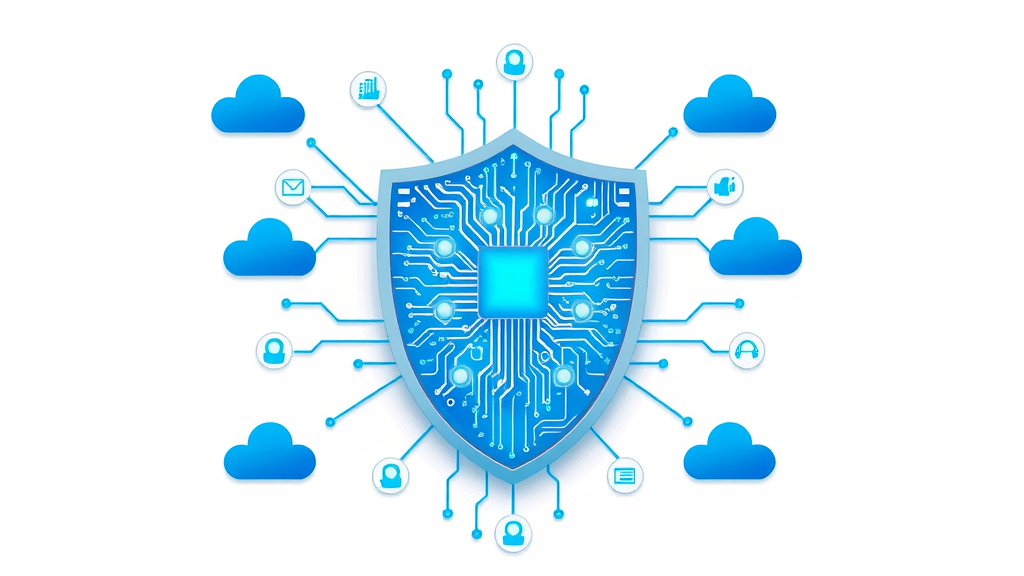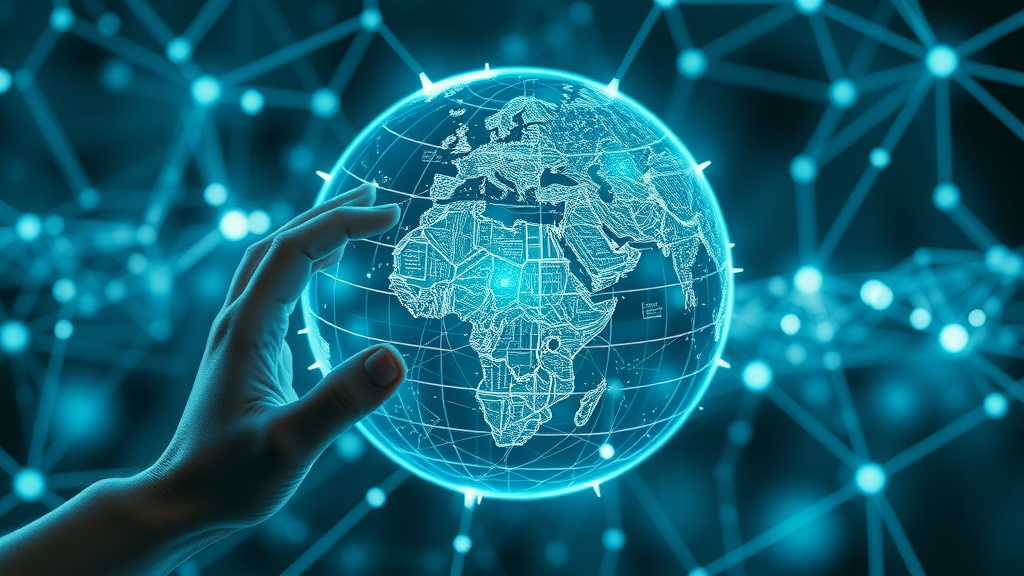Did you know? Over 60% of African businesses feel vulnerable due to lack of control over their digital data environments. This startling reality reveals why digital sovereignty is no longer optional but a strategic imperative. In this article, we dive deep into what digital sovereignty truly means, why it matters now more than ever, and most importantly, how African leaders can harness it to steer a future where technology serves humanity, not the other way around.
Opening Hook: The Startling Reality of Digital Sovereignty
In a rapidly digitising world, sovereignty over our digital lives and data is under threat. African nations and businesses often find themselves dependent on foreign tech giants for cloud storage, data processing, and AI tools, compromising both privacy and control. The heart of digital sovereignty in the African context is about reclaiming this control and ensuring that technology enhances human values and societal welfare.
Esther Görnemann, CEO of Tenex Africa - Momentum Digital Agency, poignantly states, “Digital sovereignty is not just about control over data; it is about reclaiming the soul of our digital future.” Her insight underlines a vital truth: technology reflects the intent and integrity of those who wield it. This perspective urges us to look beyond technological capabilities and focus on the ethical and human-centric leadership needed to navigate the AI revolution successfully.

What is Digital Sovereignty? Defining the Core Concept
The Theory of Digital Sovereignty
Digital sovereignty is fundamentally the right and capability of a country or region to control its digital infrastructure, data, and associated technology ecosystems. It encompasses more than legal jurisdiction—it embodies cultural, ethical, and economic stewardship of digital resources. In Africa, this theory takes on unique importance as nations strive to balance innovation with regional autonomy, safeguarding sensitive personal and corporate data against external exploitation.
At its core, digital sovereignty encourages nations to develop indigenous IT infrastructures and strengthen internet governance, ensuring that data flows benefit local populations and economies. This includes promoting a digital ecosystem where AI and cloud technologies align with African priorities and values.

Key Requirements for Digital Sovereignty
- Control over data infrastructure and cloud services: Ownership or regulated access to the physical and virtual resources where data is stored and processed.
- Robust digital policy frameworks: Clear laws and regulations that protect data privacy, promote cybersecurity, and ensure ethical AI use.
- Strong internet governance mechanisms: Transparent and inclusive management of internet resources that reflect national or regional interests.
- Investment in sovereign cloud technologies: Building local cloud platforms to reduce dependency on foreign providers and enhance data security.

As African leaders and organizations work to strengthen their digital autonomy, understanding the intersection of digital sovereignty and media ownership becomes crucial. For a deeper look at how these elements drive business success, explore the pivotal role of media ownership in advancing digital sovereignty for African businesses.
The Role of Internet Governance in Digital Sovereignty
Challenges in Internet Governance
Effective internet governance is both a pillar and a challenge for digital sovereignty. African countries face obstacles such as inconsistent policies across borders, infrastructural gaps, and influence from multinational tech firms whose priorities may not align with local interests.
Moreover, governance in the digital era necessitates a multi-stakeholder approach where governments, private sectors, and civil society collaborate to craft policies that protect users while fostering innovation. Without this, the risk of digital colonialism grows—where data and control are extracted from African users to benefit foreign entities.

Sovereign Cloud: The Backbone of Digital Sovereignty
Benefits of Sovereign Cloud Solutions
- Enhanced data security and privacy: Locally hosted data reduces exposure to breaches and unauthorized foreign access.
- Compliance with local regulations: Ensures that data handling aligns with national laws such as data protection regulations.
- Reduced dependency on foreign cloud providers: Strengthens national control over critical infrastructure.
- Support for regional AI innovation: Enables tailored AI development that respects cultural and ethical contexts.
Esther Görnemann of Tenex Africa emphasizes, “Sovereign cloud is not merely a technology choice; it is a strategic imperative for digital independence.” This insight highlights the necessity for African countries to invest in sovereign cloud infrastructure as a foundation for digital sovereignty.

Digital Policy: Crafting the Framework for Sovereignty
Examples of Effective Digital Policies
| Country | Policy Focus | Impact on Digital Sovereignty |
|---|---|---|
| European Union | GDPR and AI regulations | Strengthened data privacy and AI accountability |
| China | Data localization laws | Increased control over domestic data flows |
| African Union | Digital transformation strategies | Promoting regional digital autonomy |

Common Misconceptions About Digital Sovereignty
Clarifying the True Intent of Digital Sovereignty
Many misunderstand digital sovereignty as a form of digital isolationism or protectionism. However, it is not about shutting out global technologies but about creating equitable partnerships where African data governance and technological development reflect local values and strategic interests.
Digital sovereignty enables nations to participate fairly in the global digital economy, ensuring their citizens’ data rights are respected and local innovation is fostered, instead of having a dependency on external entities that dictate terms.

Expert Insights: The Human Element in Digital Sovereignty
Esther Görnemann states, “Digital sovereignty is ultimately about the character of the artisan who wields technology. It demands wisdom, empathy, and moral courage.” Her words remind us that technology is not neutral; it is a reflection of the values and choices of those controlling it.
The New Mandate for Leaders in the AI Era
Digital sovereignty in the age of AI calls for a new kind of leadership—one that prioritises human wisdom alongside technological prowess. Leaders must focus on automating tasks, not relationships, preserving empathy and strategic judgment while empowering AI to enhance efficiency.
By wielding AI as a mirror to their values, African leaders can ensure technology builds a “soulful ecosystem” rooted in respect for human dignity and cultural identity. This leadership approach is essential for crafting a future where technology amplifies humanity, not diminishes it.

What You'll Learn: Key Takeaways on Digital Sovereignty
- Digital sovereignty is a strategic imperative in the AI age.
- It requires robust internet governance and sovereign cloud infrastructure.
- Effective digital policies are essential to protect data and privacy.
- Leadership wisdom and ethical considerations are central to success.
People Also Ask: Addressing Common Questions on Digital Sovereignty
What is the meaning of digital sovereignty?
Digital sovereignty means having control and authority over digital data, technology infrastructure, and the policies governing them within a geographic or political boundary. It ensures that a nation or region owns and governs its digital future without undue external influence.
What are the requirements for digital sovereignty?
Key requirements include control over data infrastructure, strong internet governance, sovereign cloud solutions, and comprehensive digital policies that align with national and regional interests to protect privacy and foster innovation.
What is the theory of digital sovereignty?
The theory posits that digital sovereignty is not only about technological control but also about ethical stewardship and reclaiming the ‘soul’ of digital engagement by aligning technology use with local cultural, social, and economic values.
Is digital sovereignty real?
Yes, it is an evolving but very real concept gaining traction globally and critically important for African nations aiming to secure their digital futures amid rapid AI adoption and globalization.

Conclusion: Embracing Digital Sovereignty as a Human-Centered Imperative
Embrace digital sovereignty not just as control, but as a commitment to becoming more human in the age of machines—prioritising wisdom, empathy, and ethical leadership to shape Africa’s digital future.

As you continue to explore the evolving landscape of digital sovereignty, consider how broader digital strategies can empower African organizations beyond the realm of AI and data control. Delving into the importance of owned media channels in East Africa reveals how building independent digital assets can further strengthen resilience and amplify local voices. By integrating these advanced approaches, leaders and innovators can unlock new opportunities for sustainable growth and digital independence across the continent.
Call to Action
Stay informed about the evolving AI and digital sovereignty landscape in Africa. Discover AI Africa News and join the conversation shaping the continent’s digital future.
Digital sovereignty is a nation’s ability to control its digital infrastructure, data, and technologies in alignment with national laws and interests. (geopol.uk) This concept is gaining prominence as countries seek to protect sensitive information, ensure compliance with local regulations, and foster economic independence.
In Europe, initiatives like Gaia-X aim to develop a federated secure data infrastructure that allows users to retain control over their data access and usage, promoting transparency and controllability across data and services. (en.wikipedia.org) Similarly, DNS4EU is a European Union initiative providing a secure, privacy-compliant Domain Name System resolver service, enhancing EU digital sovereignty by offering an alternative to non-EU DNS resolvers. (en.wikipedia.org)
The rise of digital sovereignty reflects a global shift towards nations asserting control over their digital destinies, balancing the benefits of global connectivity with the need for security, privacy, and economic resilience.
 Add Row
Add Row  Add
Add 




Write A Comment